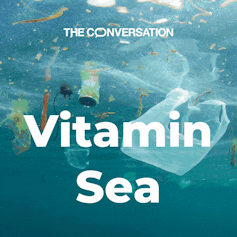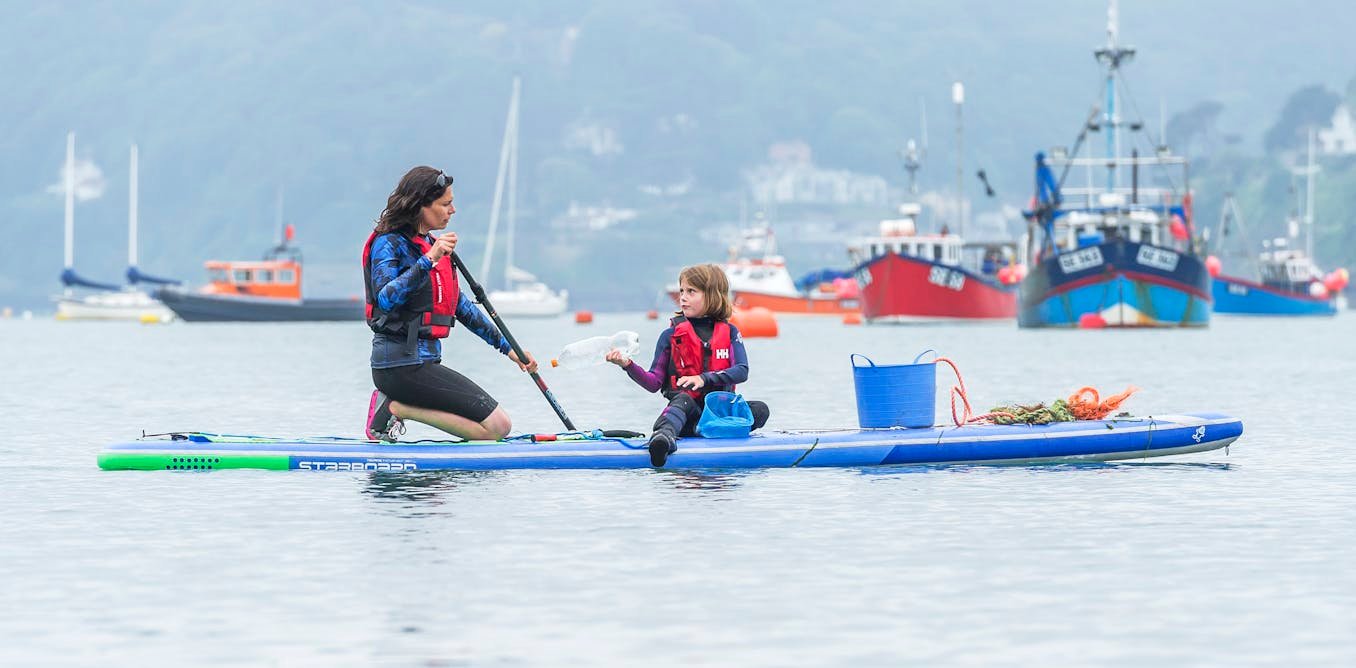Our health is intrinsically tied to the health of the ocean: half of the oxygen we breathe comes from tiny plankton in the ocean, and no matter how far we live from the shore, our actions on land affect the water in many ways, from plastic waste and sewage pollution to the fish we eat.
That’s why we launched Vitamin Sea, an exciting collaboration between The Conversation’s environment and health sections.
Anna Terns, Senior Environmental Editor
Seven years ago my daughter and I campaigned for businesses in our home town on the south coast of Devon to stop using single-use plastics.
Over two years we organised beach clean-ups and school assemblies, persuaded 60 restaurants, hotels and shops to switch to reusables, took part in live TV interviews and led a two-day, 22-mile paddleboard expedition collecting litter along every creek in the Salcombe Estuary.
I’m sure we wouldn’t have gone to such extremes if we didn’t feel a strong connection to this beautiful tidal estuary and a strong need to protect it from litter and pollution, but having grown up in landlocked Bedfordshire, it’s interesting where that feeling comes from.
The science of blue health—the concept that being near, on, or in water is good for our mental and physical health—is relatively well established. Water includes everything from decorative fountains in urban areas to rivers, lakes, coves, and streams, all of which ultimately drain into the ocean.
Now, in this “Vitamin Sea” series, we take a closer look at new research that shows how our relationship with the ocean can impact the conservation of marine habitats, and that our relationship with the ocean is reciprocal no matter where we live.
Katie Edwards, Health Editor
I grew up in Mexborough, South Yorkshire, a post-industrial town in the north where poverty and destitution were rampant. Trips to the coast at Skegness, Scarborough and Blackpool were annual holiday traditions. The sea and its creatures seemed far removed from everyday life.
So what does Blue Health mean for those who live inland? How can those who live in urban areas, often with pressing social issues in their communities, contribute to ocean health? And how can those of us who live miles from the coast develop a relationship with the ocean and reap its benefits?
From the sunscreen we smear on in the middle of summer to the wetsuits we wear when we swim, to the products we pour down our drains and the food we eat, experts explain how our choices and actions can positively or negatively impact the marine environment.
Researchers explain the social science behind the healing power of surf therapy and how to measure the blue health benefits, and scientists reveal why taking part in beach clean-ups can actually restore your mental health.
Let’s begin.

Whether we’re swimming, sailing or building sandcastles, the ocean has a positive impact on our physical and mental health. Intrigued to know how a strong connection to our coasts can help protect our oceans, scientists are investigating the power of blue health.
This article is part of our series, Vitamin Sea, which explores how our interaction with the ocean enriches it.

